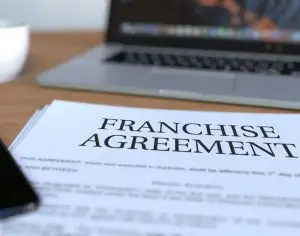A disagreement can develop into a dispute in most businesses and franchising is no exception. The most common areas of dispute are:
Misrepresentation
This is usually caused by the franchisor issuing exaggerated profit forecasts and a lack of transparency about the franchisee failure rate. To avoid this the franchisor should be completely truthful and offer not only the profit forecasts but also the data on which they were based.
The failure rate should be fully explained, particularly if the territory has previously been operated by a franchisee who failed or was terminated. Franchisors are generally reluctant to disclose their failure rate, but it is much better to openly discuss it rather than run the risk of the franchisee learning about it later and feeling that they were misled.
Training and compliance with the business model
Many franchisors incorporate their training programme into the operations manual. If so it should be updated whenever necessary to prevent deviations from becoming established and the business model being compromised. The franchisees can hardly be expected to deliver a consistent quality of service and operate efficiently if they are not trained properly.
Many franchises use training and mentoring by experienced franchisees which can also create camaraderie. Group training has a similar effect. Lack of training leads to inconsistency in the quality of the service for the end user. This can damage the brand and cause dissatisfaction and unrest in the franchise network. The continued provision of training demonstrates a commitment by the franchisor and builds trust and confidence.
Errors in defining territories
Most franchisors award exclusive territories which are usually defined by post codes. Unfortunately, Royal Mail occasionally make changes. To make matters more difficult, post codes seldom follow county boundaries or features such as rivers or roads. Care must therefore be taken to ensure that parts of territories are not duplicated in different franchise agreements. These errors can remain undetected for long periods which can increase the financial implications and the likelihood of a dispute.
Not surprisingly franchisees expect the franchisor to uphold the exclusivity that they have been granted. If this is compromised, the franchisor should speedily resolve the problem. Failure to take positive action will almost always lead to a dispute. It is also important that during the recruitment process the franchisor explains the rules concerning active and passive selling and how that limits the ability to enforce exclusivity.
Minimum monthly service fees
These are a regular source of unrest and have caused many disputes. If they are set at a realistic level, that is being achieved by most of the franchisees, they can be justified. Unfortunately, some franchisors set them at a much higher level. This causes those who don’t reach that level to pay more than the agreed percentage of service fee. In some cases, this has been known to double the agreed percentage. If, as a result, the franchisee asks to leave, the franchisor can demand all the remaining minimum payments until the end of the franchise agreement. This is grossly unjust and often leads to disputes. The way to avoid this is for the minimum fee to set at a reasonable level.
Under-declaration of sales
A certain amount of under-declaration is possible in many businesses. Franchised businesses are no exception. As this can seriously damage a franchise network, robust systems and a tight accounting culture need to be used to minimise the problem. Even then, as under-declaration is a common cause of disputes, franchisors should investigate the underlying causes. If there is a general lack of profitability, the problem won’t be solved until that is rectified. If a franchisee feels justified in under-declaring, there is probably a breakdown in the relationship. Disputes are inevitable when bad management leads to poor morale, lack of communication and mistrust. To avoid this, franchisees need to be treated as valued stakeholders and feel that they are being treated fairly.
Sale of the business by the franchisor
Disputes often arise after a sale of the business and a change of management and company culture. This is especially the case where the takeover is by a multi-brand franchisor or a venture capital investor. It is only natural that the franchisees won’t be consulted prior to the sale and will only be informed after it has taken place. That can cause resentment and uncertainty. Coupled with this, the previous owner has probably received a large pay-out while the franchisees are left to carry on with the daily grind of running their branches. The new owners, wanting to see a quick return on their investment, will be more results orientated and less amenable. When more pressure is applied morale can deteriorate and cause disputes.
Breaches of post-termination restrictions
Much case-law exists on this subject; most of which confirms that if the restrictions in the franchise agreement are fair and reasonable, they will be upheld. These restrictions are designed to allow the franchisor to find a replacement franchisee and establish their business free from competition from the outgoing franchisee. For this reason, franchisors very seldom tolerate a breach of these clauses in the agreement and litigation is almost inevitable. As stated above, franchisors nearly always win.
Other than misrepresentation, each of the reasons identified above is a variation on the common problem of a breakdown of the relationship between the franchisor and the franchisee. If both continually try to work harmoniously and act in good faith most franchise problems can be avoided.

































